
by Gideon Marcus
Three certainties
They say you can only be sure of two things in life: death and taxes. I can't offer any personal assurances on the former, but I can say a thing or two about the latter. Yesterday was, as it has been since my second year on the Journey (1955), tax day. That special time of the year when Uncle Sam gets his due so that the potholes can be filled, the guns can be loaded, and (more recently and most welcomely) the poor can be relieved.

As you know, LBJ got his predecessor's big tax cut passed a couple of years back, a move that outraged the conservatives. Of course, the benefits of that have largely passed me by — I make enough from running Journey Press to buy a cup of coffee, second-hand. (Feel free to help change this state of affairs by buying more of our books!) On the other hand, a penurious existence means I don't have to cough up much dough come April 15.
Nevertheless, I did part with some shekels. It was fortunate indeed that the latest issue of F&SF was at hand to balm the wound. As has been the case for several months now, the mag was decidedly non-taxing. Thank you, Ed Ferman, for giving us a third certainty in our lives!
The Issue at Hand

by Mel Hunter
And Madly Teach, by Lloyd Biggle, Jr.
With the advent of TV has arisen the notion of educational television, augmenting the classroom with studio-produced classes. They have the advantage of combining nearly universal reach as well as the possibility of securing the best professionals.
But what if, in the interests both of frugality and inflicting the least bother on children, the traditional classroom is completely eschewed for the new format? One might get Lloyd Biggle's newest novelette, detailing the culture shift a spinster English teacher from Mars encounters when she tries to adapt to the new Terran ways.
It's about as realistic as Harrison Bergeron and perhaps not as important, but I think there are some good subtle messages layered beneath the obvious ones, and Biggle is a very good writer.
Four stars.
Three for Carnival, by John Shepley
It's carnival time in near-future New York. Old Mother Gimp (young, clear-eyed Barbara), the Harlequin (henpecked merchant, Saul Cooperman), and Lloyd (just Lloyd) take turns being themselves and someones else through the increasing chaos overtaking the Five Roses.
A difficult, abstract story, and not really science fiction or fantasy, I nevertheless found it engaging.
Three stars.

by Gahan Wilson
The Colony, by Miriam Allen deFord
Humans found a colony light years from home. After twenty promising years, they are overrun by rapacious half-men, who abduct a settler and generally make mayhem. Though the abductee is recovered, the presence of alien intelligence means the colonists must leave, which they do with sadness. But not before it is learned that the half-men are actually a variety of human.
The kicker? The events of the story took place 30,000 years ago, and the savages were Neanderthals.
This kind of gotcha story might have flown back in the 40s, but it creaks in the 60s. Moreover, it doesn't make a lick of sense. It is, however, decently written. No one can fault deFord for not knowing her craft; she just needs to take a refresher course in plot ideas.
Two stars.
Breakaway House, by Ron Goulart
Pete Goodwin scratched at his short blond hair and said, "Gretchen exaggerates, Max. We're still on our shakedown cruise with this house and little things are going to show up."
Max watched the sherry in his glass. "Of course, Jillian and I are apartment types so far. But maple syrup in the closets and bobcats in the shower. That stuff sounds unusual, Pete."
"Life is different in the suburbs, Max."
Yes, amateur occult detective Max Kearney is out of retirement for another droll tale of investigation. This time, he and his new wife, Jillian the witch, are helping out a neighbor in the new tract housing subdivision. It must be haunted, but Pete seems strangely reluctant to deal with it. Is he possessed? Has he made a deal with the Devil? Or is it really not a very big matter after all?
It wraps up a little quickly, but it's great fun along the way. Four stars.
Beamed Power, by Theodore L. Thomas
Someday Tesla will be proven right, and we won't need wires to transmit energy. But will the result be a utopia or a terrorist's playground? It's a subject worthy of a full-length article, perhaps in Analog. As is, this is an unsatisfying appertif.
Three stars.
Flattop, by Gregory Benford
New author Benford offers up a Nivenesque tale of first contact between a human astronaut and a mobile Martian bath rug. Except this creature has explosive capabilities for growth, and a single sample threatens an entire expedition.
Very crunchy stuff. I liked it. Four stars.
H. P. Lovecraft: The House and the Shadows, by J. Vernon Shea

Apparently, the Weirdest of the Weird Tales bunch wasn't quite the weirdo his stories would lead us to believe. Racist and anti-semitic, sure (though he was buddies with Robert Bloch and he married a Jew). Anti-social, absolutely (and yet generous to a fault despite his poverty; he wrote his fans lavish and helpful letters, even at the expense of his own writing time). Sexless and haunted? Arguably, but if one looks for Lovecraft in his stories, they're not going to find him.
I'm neither a lover of Lovecraft not a detractor. I feel he had three good stories in him, and he kept writing them throughout his career until he got them right. Along the way, he evaded critical praise but amassed a fandom that really only came to the fore after his death at 47 (ouch! That's my age!)
Shea's biography is interesting, poetic, and enlightening. Four stars.
The Third Dragon, by Ed M. Clinton, Jr.
A lovely tale of three dragons and a girl that underscores that nice guys can finish first. Four stars.
Time and Tide, by Isaac Asimov
The Good Doctor offers up a good, if slightly padded, piece on the mechanism of tides with a brief look at tides around the solar system. Good stuff. Four stars.
Man of Parts, by H. L. Gold
Lastly, a story you know has to be a reprint since the former editor of Galaxy isn't doing much of anything these days. In brief: Major Hugh Savold of the Fourth Terran Expedition against Vega, crashes onto the peaceful planet of Dorfel. With very little salvageable but two arms and much of a brain, he is fused with the similarly mangled Dorfellow Gam Nex Biad.
Now a living rock-borer and legally no longer human, can the Major make it back to his ship and leave the living nightmare he finds himself trapped in?
Pleasant enough, but it shows its age. Three stars.
Summing Up
Tallying the numbers on my form 1040-GJ, I find the May 1965 F&SF scores a respectable 3.5 stars. I wouldn't say any of the stories will be up for this year's Galactic Stars, but all of them are readable and several are memorable.
I can almost forget how light my pocketbook has become… at least until the next time I have to buy a month's worth of science fiction!


![[April 16, 1966] Non-taxing (May 1966 <i>Fantasy and Science Fiction</i>)](https://galacticjourney.org/wp-content/uploads/2021/04/660416cover-664x372.jpg)

![[March 22, 1966] Summer in the sun, winter in the shade (April 1966 <i>Fantasy and Science Fiction</i>)](https://galacticjourney.org/wp-content/uploads/2021/03/660320cover-672x372.jpg)



![[February 18, 1966] Fixing up the old place (March 1966 <i>Fantasy & Science Fiction</i>)](https://galacticjourney.org/wp-content/uploads/2021/02/660218cover-672x372.jpg)








![[February 10, 1966] Within and without (Isaac Asimov's <i>Fantastic Voyage</i> and Samuel R. Delany's <i>Empire Star</i>)](https://galacticjourney.org/wp-content/uploads/2021/02/660210cover-672x372.jpg)
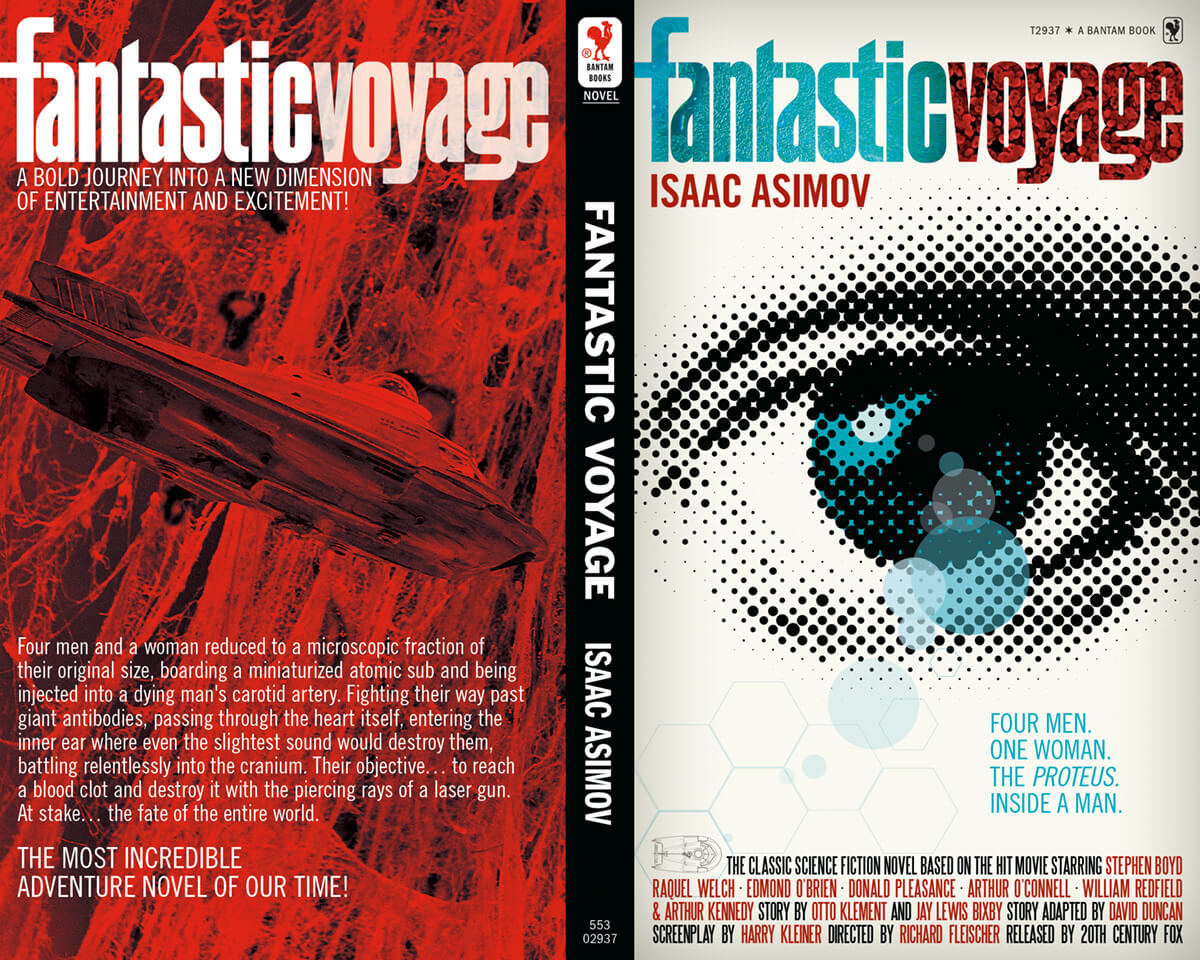


![[January 20, 1966] Bombs, duds, and happy endings (February 1966 <i>Fantasy and Science Fiction</i>)](https://galacticjourney.org/wp-content/uploads/2021/01/660120cover-565x372.jpg)

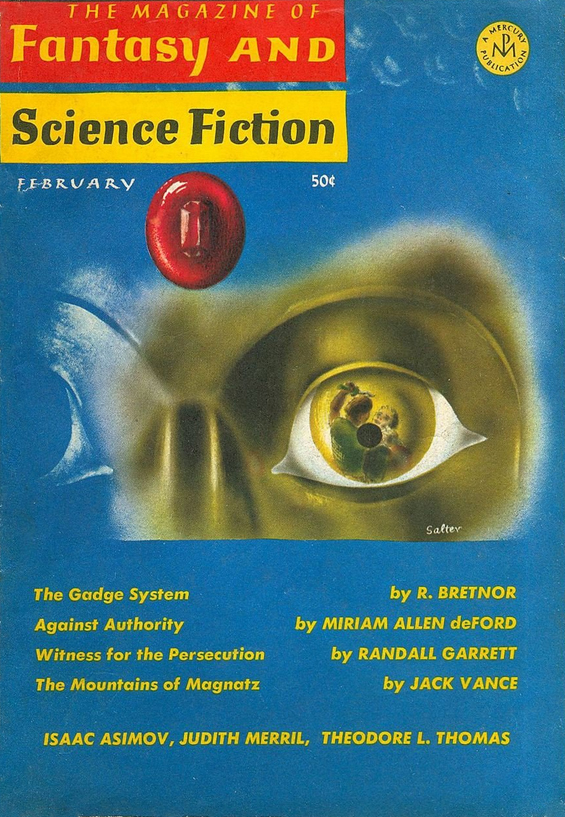
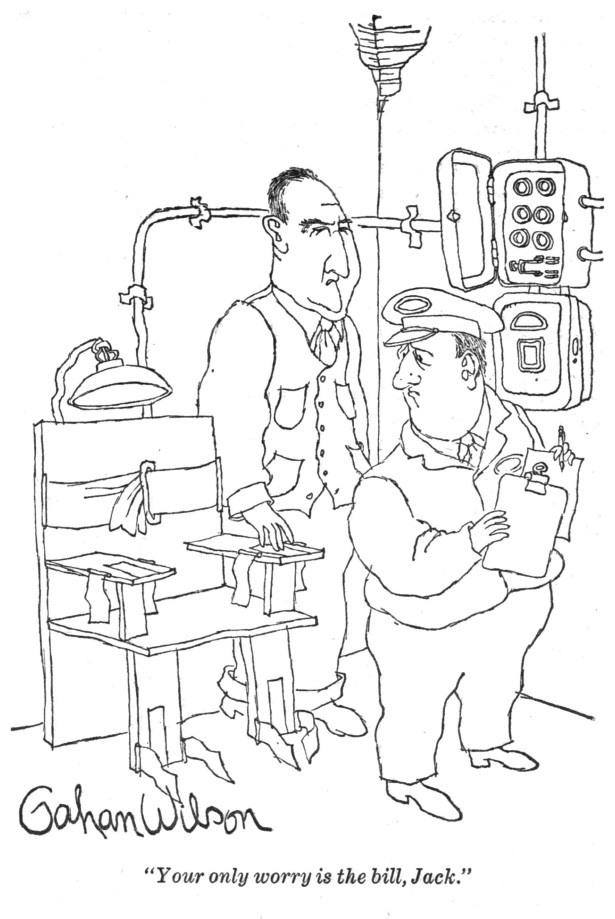
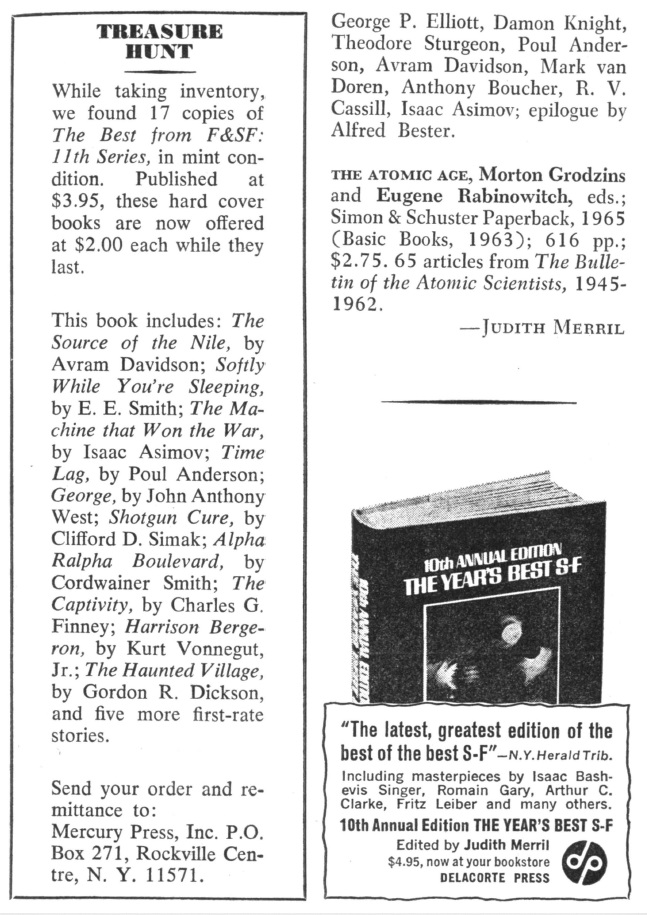
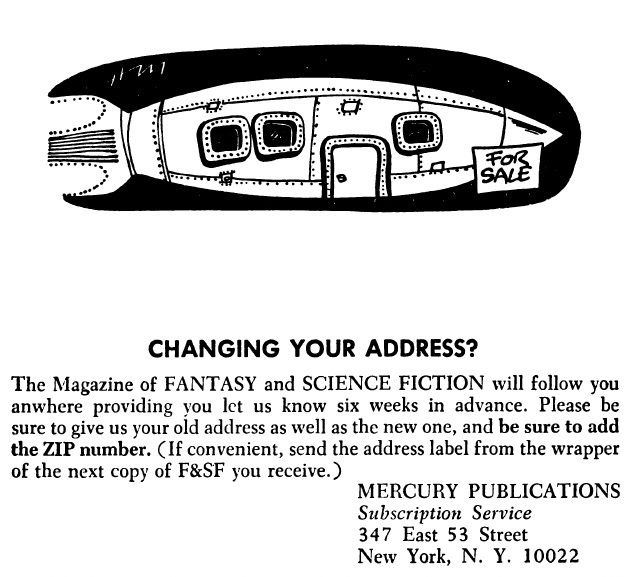
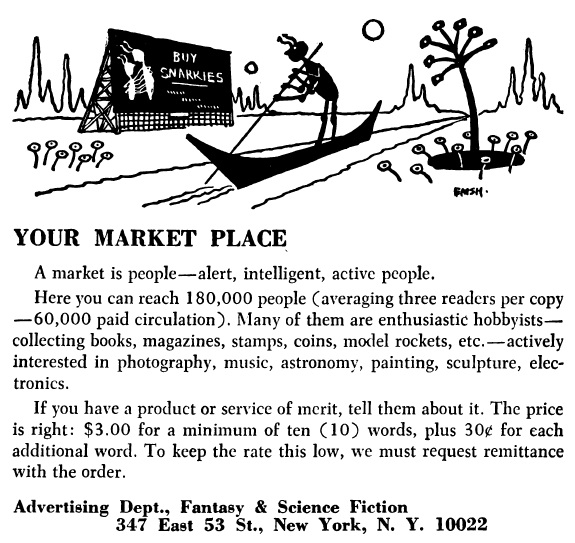
![[January 18, 1966] New Discoveries of the Old (<i>Out of the Unknown</i>)](https://galacticjourney.org/wp-content/uploads/2021/01/Out-of-the-Unknown-Titles.jpg)



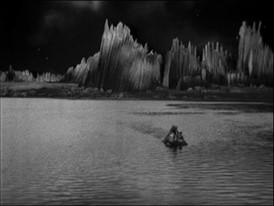

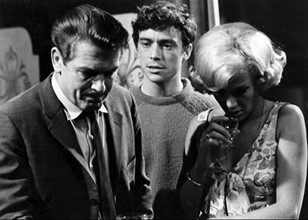
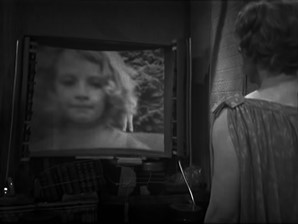

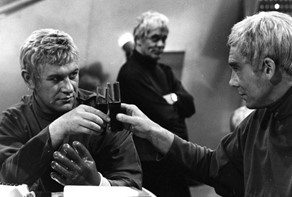

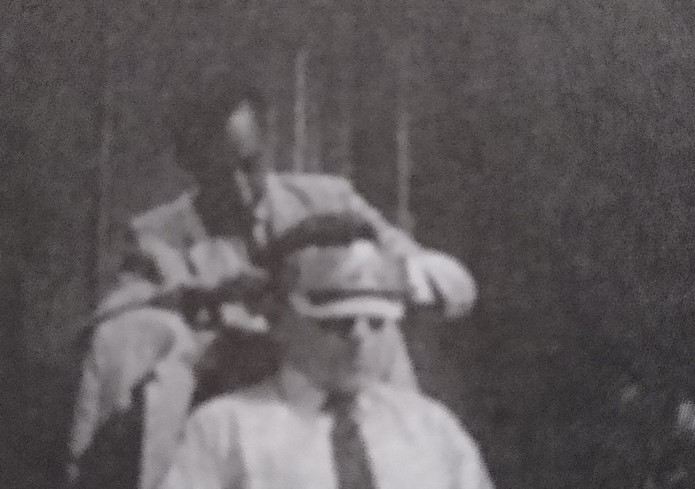




![[December 18, 1965] Bulges and Depressions (January 1966 <i>Fantasy and Science Fiction</i>)](https://galacticjourney.org/wp-content/uploads/2020/12/651216cover-672x372.jpg)





![[November 20, 1965] A fine cup of coffee (December 1965 <i>Fantasy and Science Fiction</i>)](https://galacticjourney.org/wp-content/uploads/2020/11/651120cover-672x372.jpg)




![[October 18, 1965] Turn, Turn, Turn (November 1965 <i>Fantasy & Science Fiction</i>)](https://galacticjourney.org/wp-content/uploads/2020/10/651018cover-672x372.jpg)



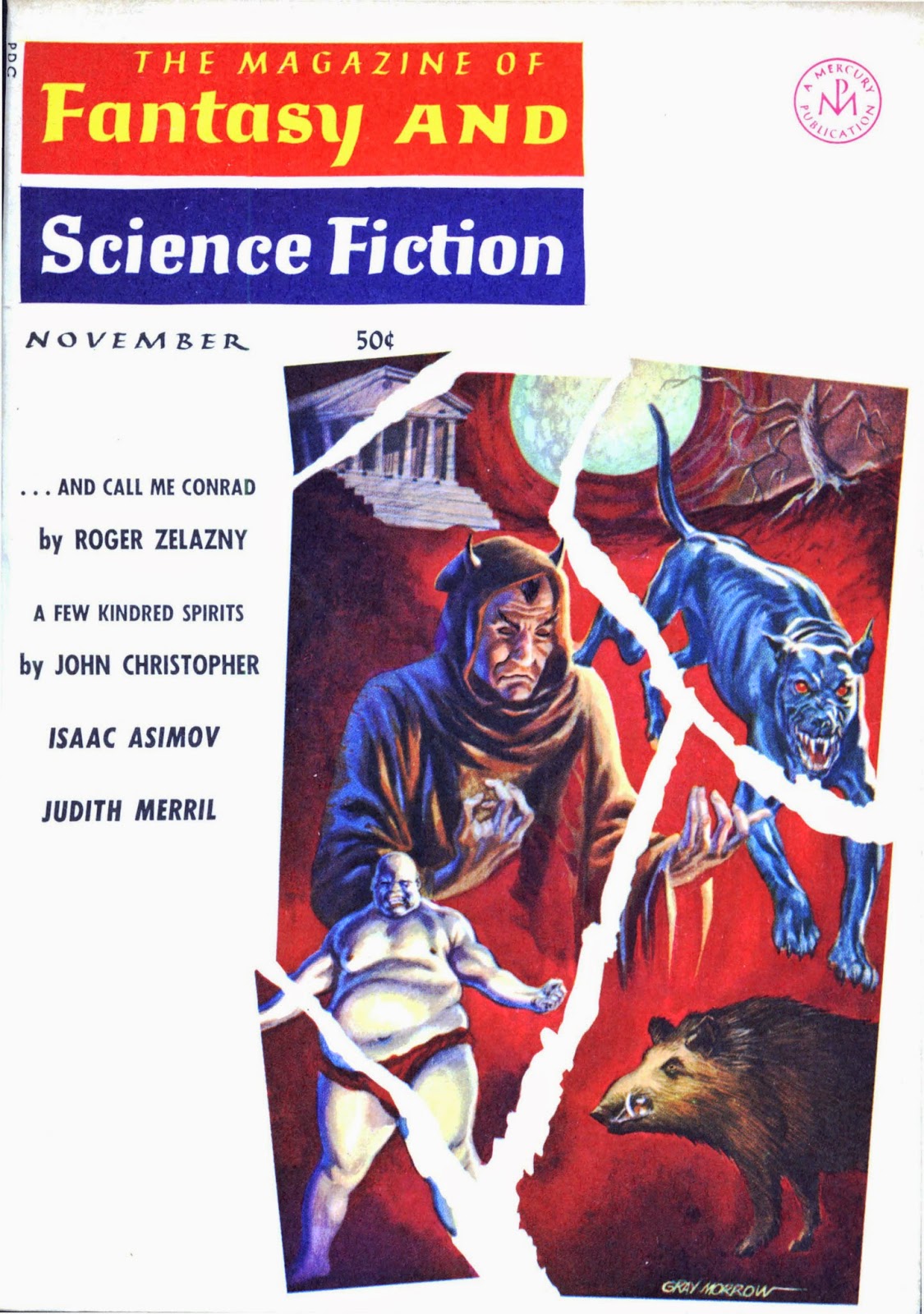

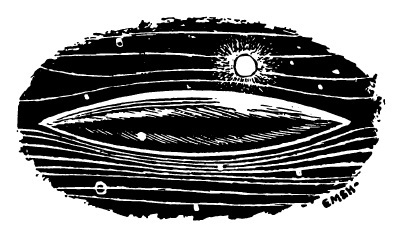
![[September 20, 1965] Unfinished Business (October <i>Fantasy and Science Fiction</i>)](https://galacticjourney.org/wp-content/uploads/2020/09/650920cover-672x372.jpg)


